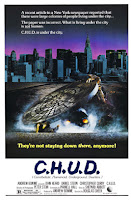 Sandbach (1876: translation of Dutch 1872 translation, no study of the Fryas language)
Sandbach (1876: translation of Dutch 1872 translation, no study of the Fryas language)
vs. Ott (2024, translation of original manuscript text, after 14 years study of the Fryas language — updated May 2, '24):
a sample
Sandbach p. 3, Ott ch. B
VMB VSA LJAWA ÉTHLA.S WILLE ÀND VMB VSA LJAWA FRYDOM.S WILLE
S: for the sake of our dear forefathers, and of our dear liberty
O: For our beloved ancestors’ sake, and for the sake of our precious freedom
THRVCHDAM WI HJARA LJUDA TO SPRÉKE THVRA, VR FRYDOM
S: because we dare to speak to their people of liberty
O: because we dare speak to their people of freedom
Sandbach p. 17, Ott ch. 2f
THÁ HJA JÉROCH WRDON. THÁ LÉRDE HJU HJAM THJU WÉRTHA FON THA FRYDOM KÀNNA
S: when they were grown she taught them the value of liberty
O: when they grew up, she gave them to understand the value of freedom
SVNDER FRYDOM SEND ALLE ÔTHERA DÜGEDON ALLÉNA GOD VMBE JO TO SLÁVONA TO MAKJANDE
S: Without liberty all other virtues serve to make you slaves
O: Without freedom, all other virtues will only help make you into slaves
Sandbach p. 39, Ott ch. 3e
HJA MACHTON FRY LÉTEN WÉSA BY ÀRGE LOFTUM
S: they may have obtained their liberty by making treacherous promises
O: they may have been set free in exchange for traitorous promises
Sandbach p. 101, Ott ch. 9d
BIFÁRA THÀT FINDA.S.FOLK RIP TOFARA FRYDOM SY
S: before Finda's people will be ripe for liberty
O: before Finda’s folk are ripe for freedom
Sandbach p. 107, Ott ch. 10b
THÀT.ER TO LÔNGE LESTA FON ÉLIK SA ÀND FON FRYDOM HA NAVT ÔWERS AS THA SKIN ÀND THA NÔME VR BILÉF
S: that at long last nothing remained of liberty but the shadow and the name
O: that, at long last, nothing remained of equality and freedom beyond illusions and words
Sandbach p. 111, Ott ch. 11a
BITHAM HJA HJARA SÉDE VRLÉREN THÀN SKOLDE HJA ÁK HJARA FRYDON (→FRYDOM) VRLJASA
S: if they lost their morals they would soon lose their liberty
O: if they should lose their morals, they would also lose their freedom
Sandbach p. 183-185, Ott ch. 15b
IN ÉRA TIDA NISTON THA SLÁVONA FOLKAR NAWET FON FRYHÉD
S: In the olden times, the Slavonic race knew nothing of liberty
O: In early times, the slave peoples knew nothing of freedom
FON HJAM HÉRADON HJA KÀLTA VR É.LIKA FRYDOM ÀND RJUCHT ÀND OVERA ÉWA
S: From them they heard of liberty, of justice, and laws
O: From these, they heard talk of equal freedom, justice, and laws
Sandbach p. 217, Ott ch. 16e
NV IS DÜGED FON UT HJARA MIDDEN WÉKEN. WISDOM IS FOLGTH ÀND FRÍDOM (→FRYDOM) IS MITH GVNGEN
S: virtue passed away, wisdom and liberty followed
O: virtue has vanished from their midst; wisdom followed and freedom went with it
- - - - - -
etymonline.com: »from Latin libertatem (nominative libertas) "civil or political freedom, condition of a free man; absence of restraint; permission," from liber "free"«
Freedom and
Liberty in
Webster's Complete Dictionary of the English Language, London 1886 (edition of 1880)





.jpg)



















